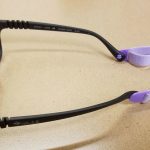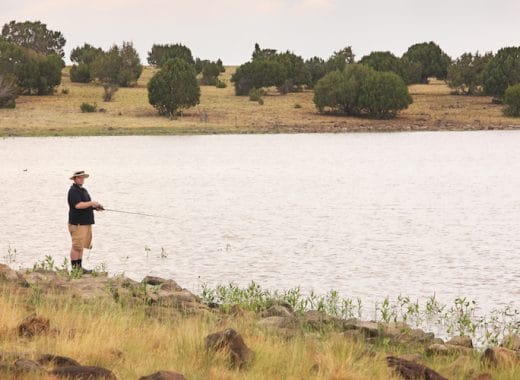Nicole Anderson earned her bachelor’s and master’s degrees from Arizona State University. She’s worked there for over ten years and even married her husband in the campus’ historic Old Main.
The university’s Autism/Asperger’s Research Program is the first to conduct a human clinical trial for Pitt Hopkins Syndrome.
“[It’s] a really rare neurodevelopment disorder,” Anderson said. “It wasn’t diagnosable until 2007. Here in Arizona, there’s only 7 children diagnosed with Pitt Hopkins.”
Anderson’s 4-year-old daughter, Alexandra suffers from the rare chromosomal condition. She is one of around 1,000 people in the world with Pitt Hopkins.
“It’s devastating in the sense that they’re missing just, one, tiny gene on their 18th chromosome,” Anderson said. “It’s called TCF4. By not having that gene it causes severe neurological disorders.”
Many who live with Pitt Hopkins don’t walk, can rarely speak and many have severe gastrointestinal challenges, which makes going to the bathroom a difficult endeavor.
ASU’s trial will focus on eradicating the gastrointestinal challenges through a microbiota transfer therapy, known as a fecal microbiota transplant with the goal of building up the bacteria in their guts.
Pitt Hopkins is typically in the autism category, which is why professor James Adams, the director of the research program, is taking on the trial.
“Abnormal gut microbiota in individuals with Autism Spectrum Disorders (ASD), suggesting a link between gut microbiome and autism-like behaviors,” According to Adams’ team’s research. “Modifying the gut microbiome is a potential route to improve gastrointestinal (GI) and behavioral symptoms in children with ASD, and fecal microbiota transplant could transform the dysbiotic gut microbiome toward a healthy one by delivering a large number of commensal microbes from a healthy donor.”
The same study on those with autism was very successful. 80 percent of the patients confirmed a reduction in their symptoms.
“We hope here, that we can also greatly reduce these chronic gut problems, this chronic, severe constipation that’s causing so much pain in these severely disabled children,” said Adams.
The trial will begin in early 2020 and will focus on individuals with Pitt Hopkins ranging in age from 7 to 17.
For parents like Anderson, the trial brings new hope.
“Having a child with Pitt Hopkins and having a university in our backyard that’s willing to take on this rare disorder is mind-blowing to me,” she said. “There’s no words. Honestly.”
Click here to read Adams’ team’s research.








